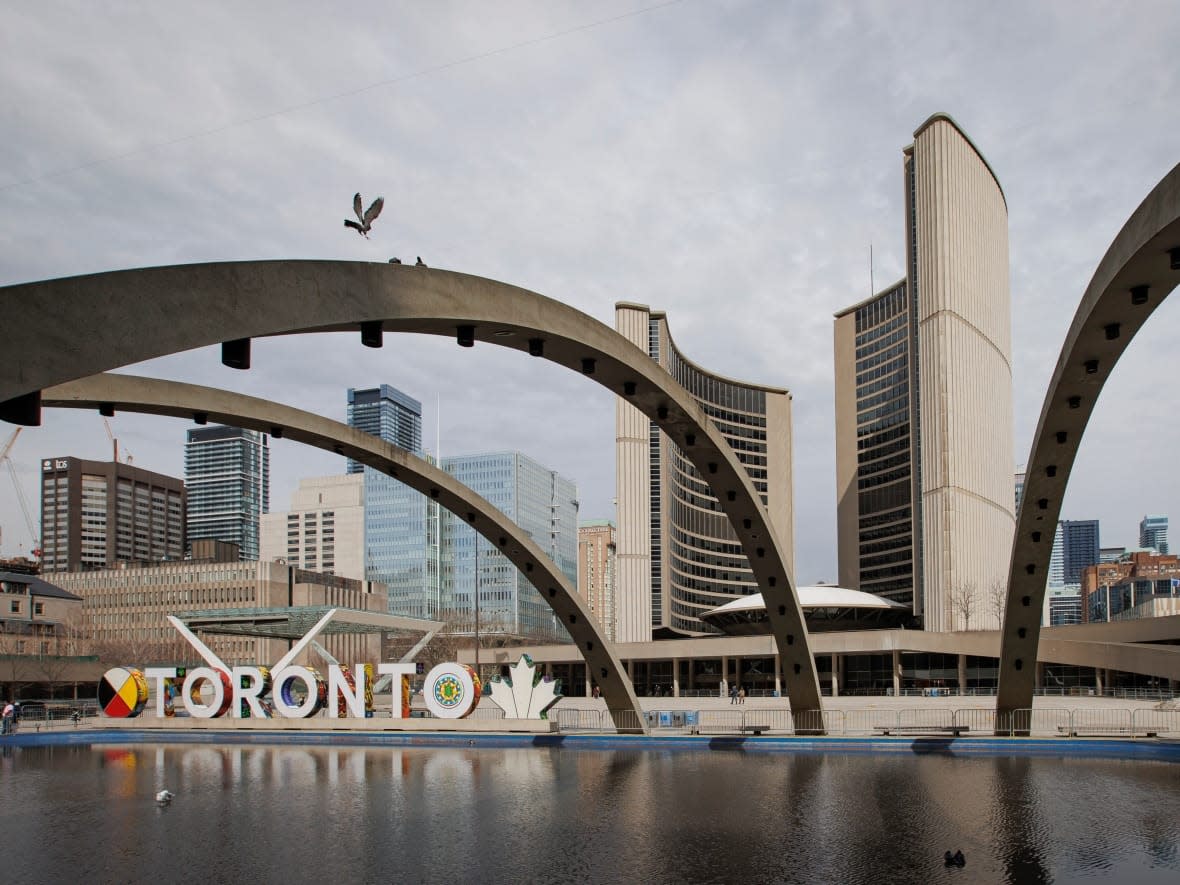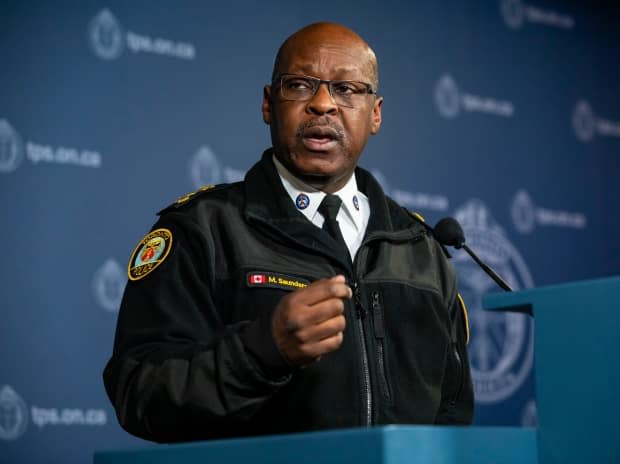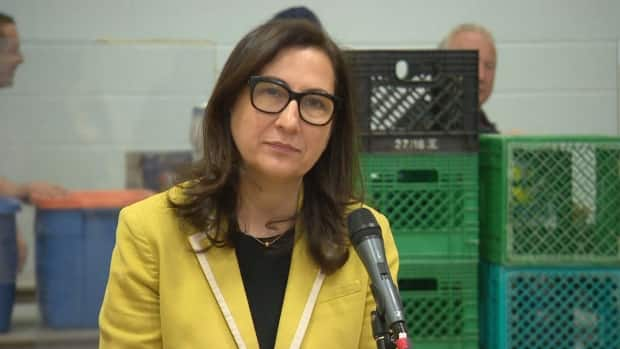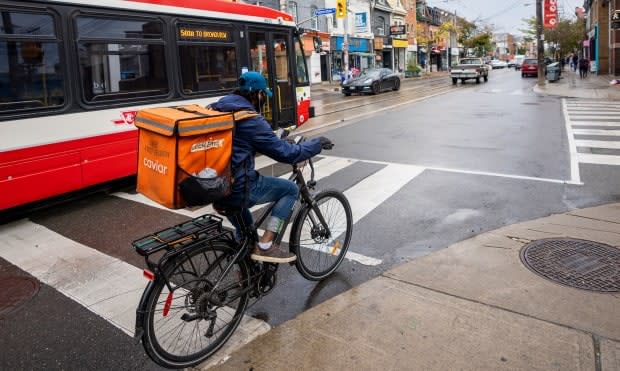Fewer bike lanes, more community gardens: What some Toronto mayoral hopefuls pitched Thursday

Bike lanes, food banks and safe injection sites were some of the issues on the agenda Thursday for those vying to be Toronto's next mayor.
This morning, candidate Anthony Furey, a former columnist for Sun News, took aim at bike lanes in Toronto and said he'd remove existing lanes on University Avenue. Thursday afternoon, former city councillor Giorgio Mammoliti also announced his "strong opposition" to bike lanes in the city.
Meanwhile, former city councillor Ana Bailão shared her plan to address food insecurity in the city by giving space to food banks and repurposing green space.
Later Thursday, former Toronto police chief and mayoral hopeful Mark Saunders spoke to reporters alongside a family he says has been negatively impacted by a nearby supervised injection site. Saunders shared a variety of policies he'd implement to clean up city streets that he said have "become littered with used needles and uncollected garbage."
Saunders's plans for supervised injection sites
Supervised injection sites save lives but people who live near them have received "the short end of the stick," Saunders said in a news release.
"I've heard stories of people keeping naloxone kits at their front doors to help prevent fatal overdoses. And of families who can't bring their kids or dogs to local parks to play because of needles carelessly discarded on the ground," said Saunders.
As mayor, Saunders said he would redirect underutilized cleaning resources to residential areas around injection sites. He would also strengthen the standards and expectations of cleanliness for supervised injection sites within their funding agreements.
"A safe community is a healthy community, and a healthy community is a prosperous community. But it all starts with community safety," said Saunders, who served as police chief for about five years.
In February, the city announced plans to collaborate with St. Michael's Hospital and Toronto Western Hospital on new supervised consumption sites. The sites provide critical medical services and have been proven to save lives, according to the city.
In 2022, there were more than 21,000 visits to supervised injection sites and more than 500 overdoses were prevented, according to a city news release published in February.

Saunders wants to create a "highly-visible" option within the 311 app where people can file reports of used needles, which would result in a disposal team being dispatched "on an urgent and priority basis."
To track where a needle came from, Saunders would introduce a colour-coded syringe system to aid decision making on areas and sources of discarded needles.
Asked how much the initiatives would cost, Saunders did not provide a dollar figure.
"When we're talking about cost, we're talking about what's happening right now and nothing is being done," he said.
Fixing food insecurity
Speaking at the Allan Gardens Food Bank, Bailão said if elected mayor she would add $2 million to the city's community partnership and investment program — which provides grants to programs supporting equity-deserving communities — and create a new funding stream specifically for food security and sustainability programs, which would help with overhead costs, she said.
"In the longer term, we need to be working toward a Toronto where our residents aren't relying on food banks in record numbers," she said. But there are actions that need to be taken in the short term, Bailão added.
Earlier this month, the CEO of Toronto's Daily Bread Food Bank said more people visited Daily Bread locations in March than at any time in the charity's 40-year history.
Bailão also said she would also allocate vacant city space for food banks and work with community partners to turn underutilized green spaces into community gardens to grow food.
She said she would push grocers to donate to food banks and launch a citywide food drive.

"By connecting food banks with city space, increasing access to fresh food and pushing corporations to provide locally, we can help meet this urgent need," she said.
Bailão said long term, it's important to address root causes of food insecurity like access to housing. She said she'll have more to say about housing in the coming weeks.
Bike lanes criticized by Furey and Mammoliti
Meanwhile, Furey said he will halt the city's pledged construction of new bike lanes and scale back on the existing infrastructure if he's elected mayor.
"The current approach to bike lanes in Toronto is outrageous — it has just gone too far," Furey said in a news release.
He alleged that bike lanes have slowed ambulance response times and worsened traffic.

"As Mayor, I will say no more bike lanes on major roads," Furey said.
The city has pledged to build 100 kilometres of new bike lanes by 2024. Furey said that's because the city caved to "fringe activists" who aren't representative of average residents.
As mayor, Furey said he would remove the existing bike lanes on University Avenue to facilitate better access to Hospital Row. Other lanes would also be considered for removal, he added.
Furey said he would be open to adding bike lanes elsewhere but would consult BIAs and community groups first — a process already in place for bike lanes that the city has previously installed.
Later on Thursday, Mammoliti joined Furey in criticizing bike lanes. If elected, Mammoliti said he would revisit every bike lane in the city. He would order a third-party investigation into all bike lanes approved and built during the pandemic to find out how much they cost and who was consulted.
Toronto's mayoral byelection is set for June 26. You can find a full list of candidates here.


